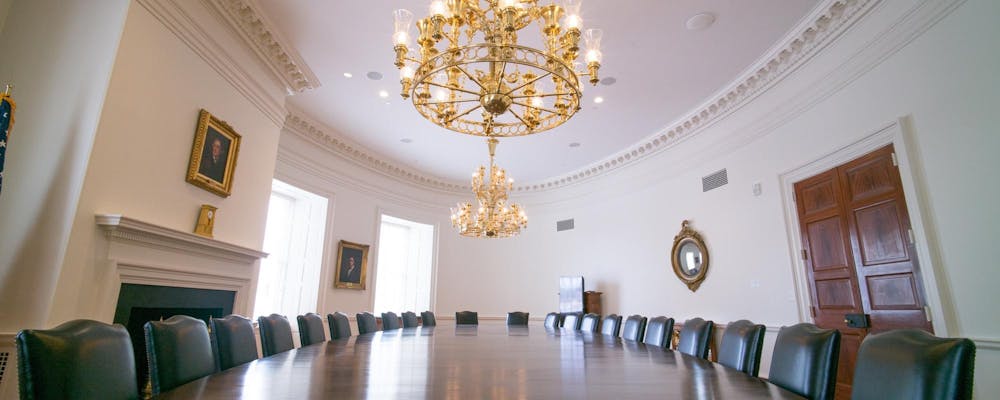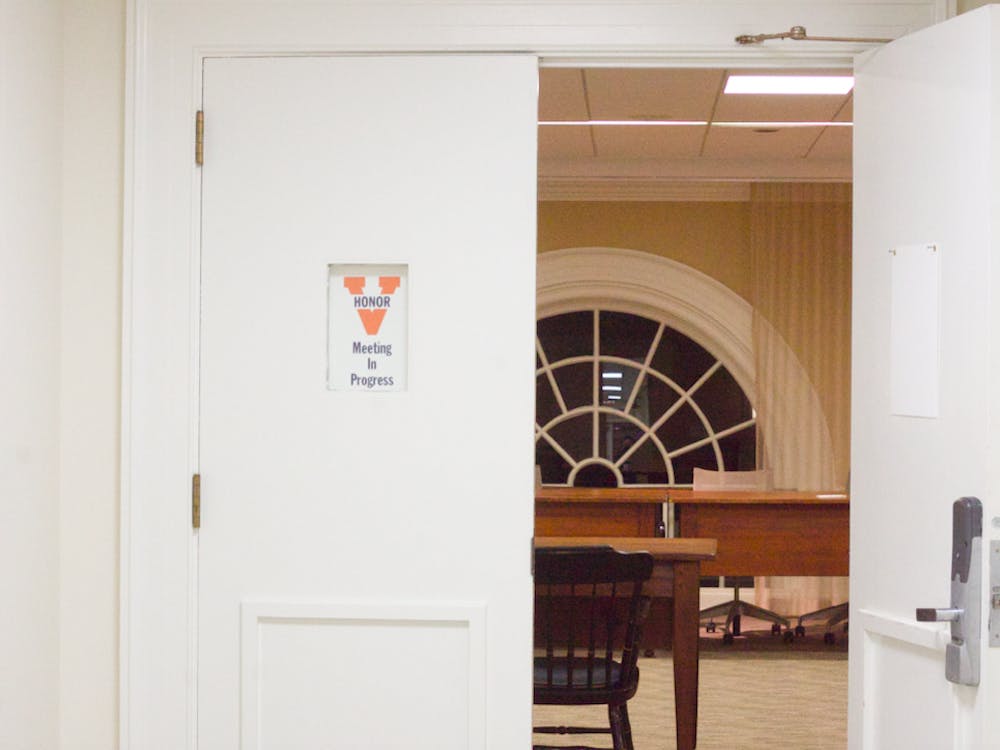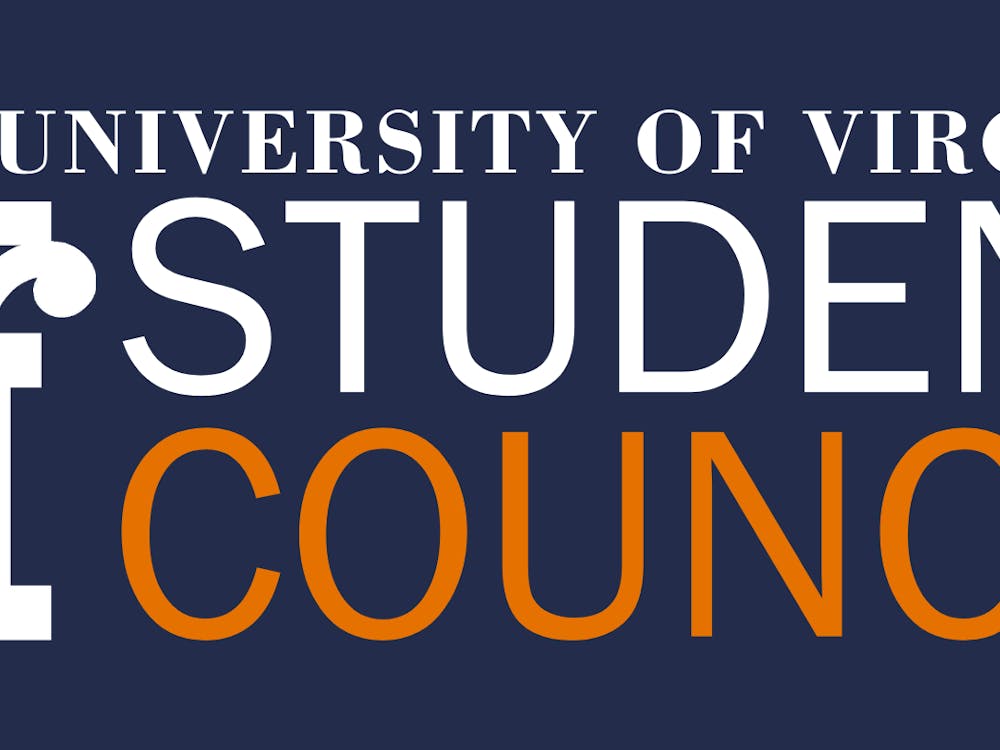At a recent meeting, the Board of Visitors opened the floor for comments on a proposed tuition increase, which will be voted on at their meeting March 5. They cited many factors, including the increased cost of online classes and lost revenue from dining, housing and athletics. In addition, they mentioned concerns over the current hiring freeze and forced staff and faculty pay cuts. To this, the Board stated that its ultimate desire is not to raise tuition — but with a caveat. Should Virginia state legislators fail to provide adequate budget changes for public universities or should the University decide to increase faculty and staff wages, then the money has to come from somewhere. While all of these are valid concerns — and University faculty and staff absolutely deserve higher wages — it is not the responsibility of students and their families, particularly in these uncertain times, to pick up the tab.
Students are hurting. During the meeting, many voiced concerns with the proposed tuition increase. One student mentioned that while the University has the ability to bounce back from losses following the pandemic, individual households do not have that same privilege. The University has an endowment worth $9.9 billion that continues to grow each year — this exists for these times. While not all of this money can be used freely, the fact remains that they have a large financial backup many families don’t have. Thus, it will be the students and their families that suffer. Many students are already working multiple jobs and experiencing increased levels of stress as a result of the pandemic and financial losses — the University does not need to be another burden.
Students, especially those from marginalized communities, cannot afford a tuition increase. A recent "Tuition Payment Difficulty" survey created by Student Council and promoted by Young Democratic Socialists of America at U.Va. reveals that many students face immense difficulties paying their tuition — 42 percent of students report that they or their family struggled to pay this year. The pandemic only exacerbates these hardships — 69 percent of students worry that they will struggle to pay tuition next year. Furthermore, the Board must remember that increases in tuition will most impact low-income, first generation and marginalized students that have already been hit hardest by the pandemic. The same survey also reports that 68 percent of Hispanic/Latinx students, 64 percent of Black/African American students and 58 percent of Asian/Asian American students faced difficulties paying tuition this year.
Although the Board said programs such as AccessUVA will continue to meet 100 percent of students’ demonstrated financial need, they fail to acknowledge the already present failures of this system. Many students are required to take out private loans to pay tuition and housing costs the University does not cover. Plus, the current financial aid system offers loans as a means of meeting this demonstrated financial need. Tuition increases only further these financial gaps many students are left with. In addition, students who do not receive financial aid would see a large increase in their tuition bill. Tuition is already incredibly expensive — pushing the cost up is only going to put further financial strain on families.
University Rector James Murray claimed the Board is aware of the hardships families are experiencing, but if that is truly the case, then a tuition increase would not even be on the table. Many BOV members, while not paid for their role on the Board, have other high paying jobs. For instance, at their respective jobs in 2019, Robert M. Blue made over $2.8 million, John M. Griffin made approximately $2.6 million and Louis S. Haddad made over $2.1 million. These are people who simply do not experience the hardships so many University students and their families face. To this, we ask the members of the Board — do you really understand the struggles of students?
Further, the Virginia General Assembly needs to pass bills that will adjust the state budget to allow for increased appropriations to Virginia’s public universities. While a tuition freeze is absolutely necessary, the pandemic has still caused some financial strain on universities in the Commonwealth. Thus, the General Assembly ought to appropriate additional funds so that a tuition increase isn’t even on the table.
Regardless, the only reasonable — and moral — decision for the University is to freeze tuition. The Board should not need to wait for action by the Virginia General Assembly to know its students deserve better. The University must not raise tuition during a pandemic, effectively overlooking its current students to invest in its future. On March 5, the Board needs to remember who they should serve — students. Listen to the voices of students — including Student Council and YDSA — when we say that a tuition increase will put immense financial strain on us. We cannot pay more, and the University should not ask us to.
The Cavalier Daily Editorial Board is composed of the Executive Editor, the Editor-in-Chief, the two Opinion Editors, their Senior Associate and an Opinion Columnist. The board can be reached at eb@cavalierdaily.com.
Correction: This Editorial previously stated the "Tuition Difficulty Survey" was created by Student Council and Young Democratic Socialists at U.Va. It has been updated to reflect that while YDSA supported the research in the survey, the survey was solely created by Student Council.






